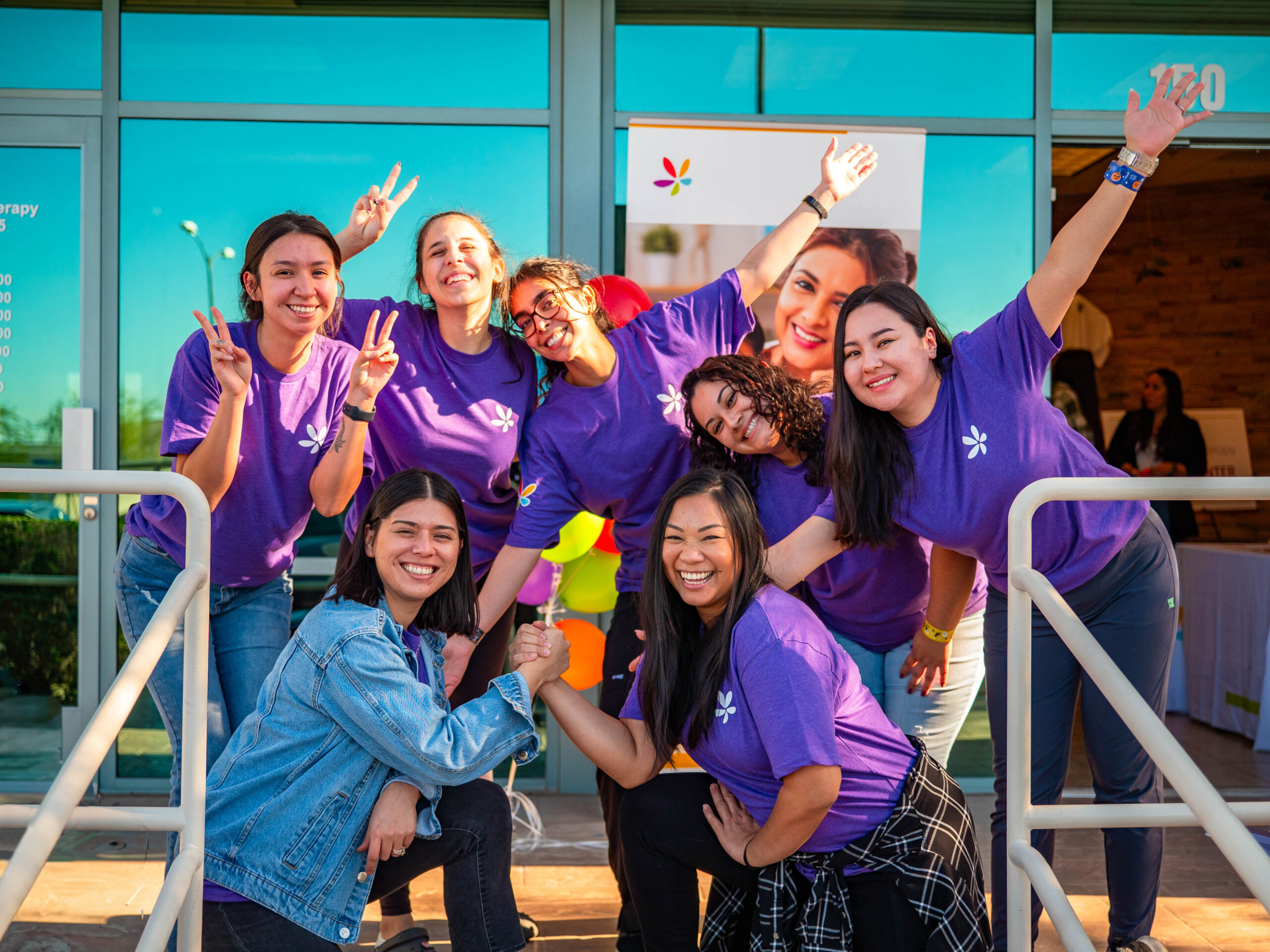November 25, 2025
Myth: Autistic People Lack Empathy
FEATURED POSTS
September 25, 2025
Katherine Johnson. M.S., BCBA
Senior Director of Partnerships, LEARN Behavioral
Note: This article is about a form of ableism that affects one part of the autistic community: autistic people who are proficient verbal communicators. Those who communicate with AAC devices, typing, sign, or who don’t yet have the communication skills to engage with the wider world face other forms of ableism and discrimination not described in this article.
The Double Empathy Problem
Remember the game “telephone”? One person whispers a message to another, that person whispers to the next, and on down the line until the last person announces the message so everyone can laugh at how many times the original sentence has been distorted.
Using a variation of this exercise, a study looked at how a message fared if the string of people in the telephone line were all autistic, all neurotypical, or a mix of both. It turns out that the rate at which the message degraded among the verbal autistic people was no greater than that of the neurotypical people. It was only when the message was sent through a mix of autistic and neurotypical people that the meaning deteriorated significantly faster.
What does this tell us?
If effective social communication was objectively deficient (not just different) in verbal autistic people, we would expect that the all-autistic string of people would produce the worst decline in messages in the study; that wasn’t the finding. Instead, the autistic people received and passed along messages amongst themselves just as well as the neurotypical people. The faulty communication resulted not from the autistic participants but from the mismatch between autistic and neurotypical communication.
This small study illustrates a theory by Dr. Damian Milton that he calls the “double empathy problem.” Challenging the assumption that neurotypical people have social skills that autistic people simply lack, he posits that the disconnects between autistic and non-autistic people are not the result of a one-sided skill deficit; they are instead a mismatch of neurotypes.
Reframing
This is a dramatic reframing of the common belief about these communication breakdowns, which placed the fault squarely on the social skill profile of the autistic folks. The “empathy” part of the theory’s name refers to the widely-held idea that autistic people lack empathy, when the theory would suggest that autistic empathy is simply expressed differently. Slowly but surely, researchers are beginning to look at that other side of the coin: how the social skill profiles of neurotypical people might also undermine relationships.
For years, research has demonstrated that autistic people have difficulty interpreting facial expressions; a 2016 study finally looked at the reverse. They asked neurotypical people to interpret facial expressions of autistic folks – and they were unable to do it. The results of a series of studies in 2017 suggest that one reason people of different neurotypes have difficulty connecting is because neurotypical people form negative first impressions of autistic people (based upon appearance, not conversational skills), and subsequently avoid them. This indicates that some of the social isolation that autistic people face is due to ableism and discrimination.
Missing Out
The difficulties autistic and non-autistic people have connecting negatively impact both sides. Since autistic people are in the minority, disconnection from the neurotypical portion of their community can increase their feelings of loneliness and isolation. For its part, the neurotypical world is missing out on the unique, often innovative, autistic perspective.
Autistic people who have had huge cultural impacts on our society (environmental activist Greta Thunberg, actor Dan Akroyd, and Pokemon creator Santoshi Tajiri, to name a few) have had success in spite of a society that is largely unsupportive of and, at times, openly hostile to, the social profile of autistic folks. Imagine what brilliance we miss out on when autistic people are looked over, avoided, not hired, etc.
Even those who are not destined to become one of the famous few mentioned above have a perspective that can deeply impact those around them. Autistic people see the world from different angles, which can be an advantage in everyday problem-solving. They generally have a strong sense of justice, an unwillingness to be cowed by hierarchy, and a drive for honesty, sincerity, and specificity, all beneficial qualities in social relationships and the workplace.
Expanding Neurotypical Empathy
The solution to the separation between people of different neurotypes has largely been to teach autistic people how to understand the rest of the world better. But by considering the double-empathy problem, we can see that this is only part of the issue. The other part is that non-autistic people also have skill deficits: interpreting and interacting with autistic people.
Just as history is written by the winners, social norms are written by the majority. If we want to work toward a future where people of all neurotypes better understand one another, we must listen to the experiences of the minority. It’s important to recognize that neurotypical “social norms” exist because they’re most common, not because they are inherently superior. These dominant “social norms” directly result from how neurotypical people think, behave, and process the world.
“Empathy” is about understanding another person’s experience. Ironically, to succeed in our society, autistic people must display empathy nearly constantly: decoding others’ unwritten rules and learning to approach the world in a way that works for others. To bridge the divide, nurture the gifts of the autistic people in our society, and for everyone to benefit from the valuable perspectives of the neurodivergent, those with neurotypical brains must follow this example. By challenging themselves to work toward understanding and adapting to the way autistic people see and experience the world, neurotypical folks can open themselves up to new friends with an intense devotion to honesty. Employers will find innovative autistic employees with rare specializations and a knack for accuracy. And society will benefit from recognizing and celebrating the valuable and previously underappreciated gifts of the autistic mind.
Damian E.M. Milton (2012) On the ontological status of autism: the ‘double empathy problem’, Disability & Society, 27:6, 883-887, DOI: 10.1080/09687599.2012.710008
Sheppard, E., Pillai, D., Wong, G.TL. et al. How Easy is it to Read the Minds of People with Autism Spectrum Disorder?. J Autism Dev Disord 46, 1247–1254 (2016). https://doi.org/10.1007/s10803-015-2662-8
Sasson, N., Faso, D., Nugent, J. et al. Neurotypical Peers are Less Willing to Interact with Those with Autism based on Thin Slice Judgments. Sci Rep 7, 40700 (2017). https://doi.org/10.1038/srep40700









